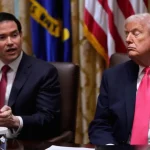
The right thing to do in one instance does not always apply under different circumstances. Thus, moral clarity often eludes us, particularly when we forget to stay focused on God.
Nonetheless, in the present condition of the country, we do have one ultra-reliable worldly rule to guide us. Namely, if it happens in California, it is probably a terrible idea.
On Wednesday, according to the Los Angeles Times, the California State Assembly passed a bill that could lead to the proliferation of Amsterdam-style “cannabis cafes,” where customers can purchase food and nonalcoholic beverages in addition to the marijuana already sold in the state’s heavily taxed and regulated dispensaries.
AB 1775 passed by an overwhelming margin of 63-5. In the California Assembly, Democrats outnumber Republicans 62-17, per Ballotpedia.
Supporters of AB 1775 defended the bill for both financial and social reasons. Some saw it as a way to increase revenue and protect existing dispensaries from black-market competition, while others simply liked the idea of giving those dispensaries a more recreational feel, per the Times.
Trending:
Meanwhile, according to KCRA-TV in Sacramento, the Assembly also adopted AB 1111, which would allow licensed cannabis farmers to sell their products at locally authorized events.
AB 1111 passed the Assembly by a 69-2 margin.
Democratic Gov. Gavin Newsom has pledged to “evaluate the bills on their merits” before signing them, per KCRA.
Having never felt the temptation to smoke anything, I confess I have nothing original to offer regarding marijuana’s relative merits. Nor — thanks be to God — have I ever counted excessive alcohol consumption among my otherwise numerous vices. Thus, I cannot compare the two.
Do you think the smell of marijuana is repugnant?
Yes: 100% (4 Votes)
No: 0% (0 Votes)
A growing number of marijuana advocates, however, seem to have adopted the argument that alcohol represents the much greater danger.
For instance, the state legislature of Nevada put out a “fact” sheet declaring marijuana “objectively less harmful than alcohol, both for the consumer and the community.”
Perhaps the California and Nevada legislatures, not to mention the rising chorus of marijuana champions, have it correct. Either way, I lack the experience, knowledge, desire or right to scold anyone on this subject.
But I would raise one point that casts at least some doubt on the Nevada legislature’s confident declaration that marijuana poses “objectively” fewer dangers, especially to the “community.”
According to The Atlantic, Americans in the Colonial Era consumed three times as much alcohol as their modern counterparts.
Yet that era produced men like George Washington, Thomas Jefferson and Benjamin Franklin, all of whom brewed their own beer.
In fact, historic City Tavern in Philadelphia, Pennsylvania, which hosted those same Founding Fathers after it opened in 1773, today offers libations brewed from the Founders’ recipes.
The temperance movement led to reduced alcohol consumption in the 19th century. But that did not stop prominent Americans from thriving in spite of their fondness for drink.
In a story that could be apocryphal, President Abraham Lincoln once reportedly chastised critics of the highly aggressive and successful Gen. Ulysses S. Grant, who loved his whiskey but also led Union forces to victory in battle more often than not.
“I wish some of you would tell me the brand of whiskey that Grant drinks. I would like to send a barrel of it to my other generals,” Lincoln reportedly said.
Britons, of course, have their own libation-loving legend.
In a story confirmed as true by one his bodyguards, an inebriated Prime Minister Winston Churchill once delivered one of history’s sharpest retorts when confronted by the disapproving socialist MP Bessie Braddock.
“Winston, you are drunk, and what’s more you are disgustingly drunk,” Braddock said.
“My dear, you are ugly, and what’s more, you are disgustingly ugly. But tomorrow I shall be sober, and you will still be disgustingly ugly,” Churchill replied.
Whether or not these anecdotes are true makes little difference, for what matters is that Churchill, Grant, Washington, Jefferson and Franklin all loved their alcohol, and — needless to say — all contributed to the health of their respective political societies.
Thus, until we find comparable contributions from the ranks of cannabis consumers, perhaps we should exercise caution before following California’s example.







